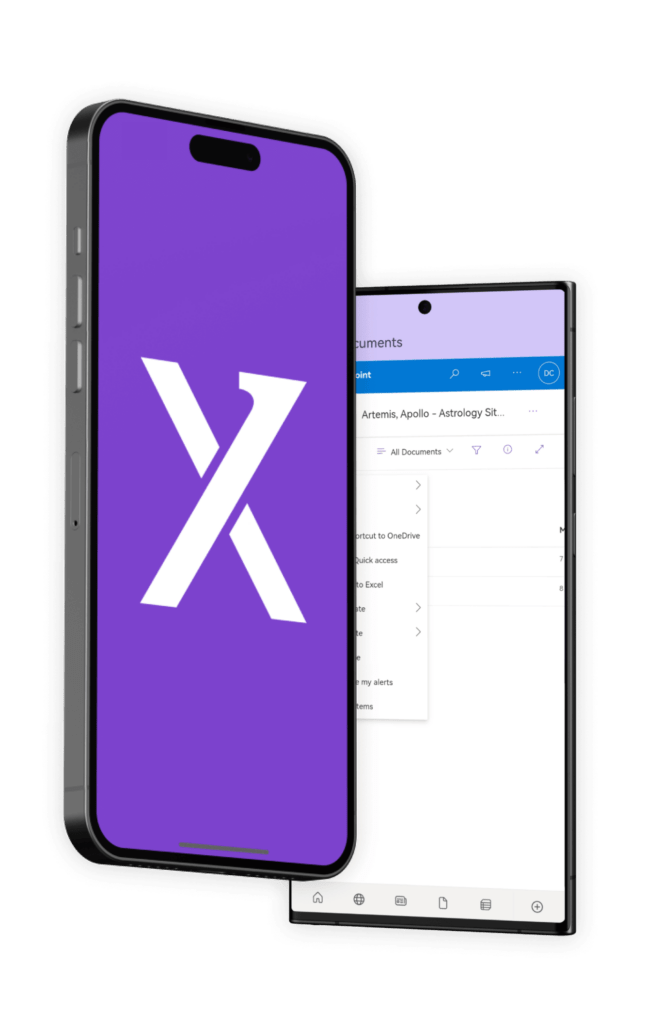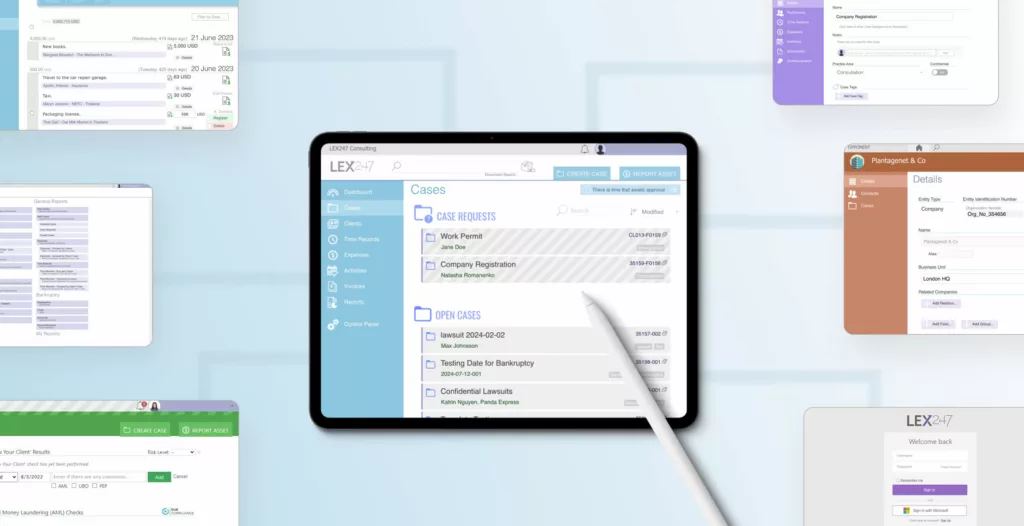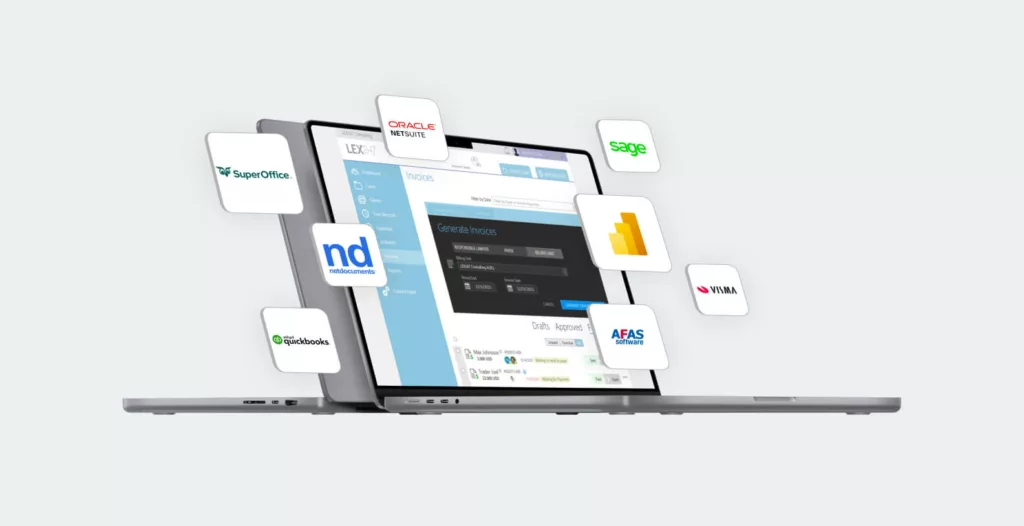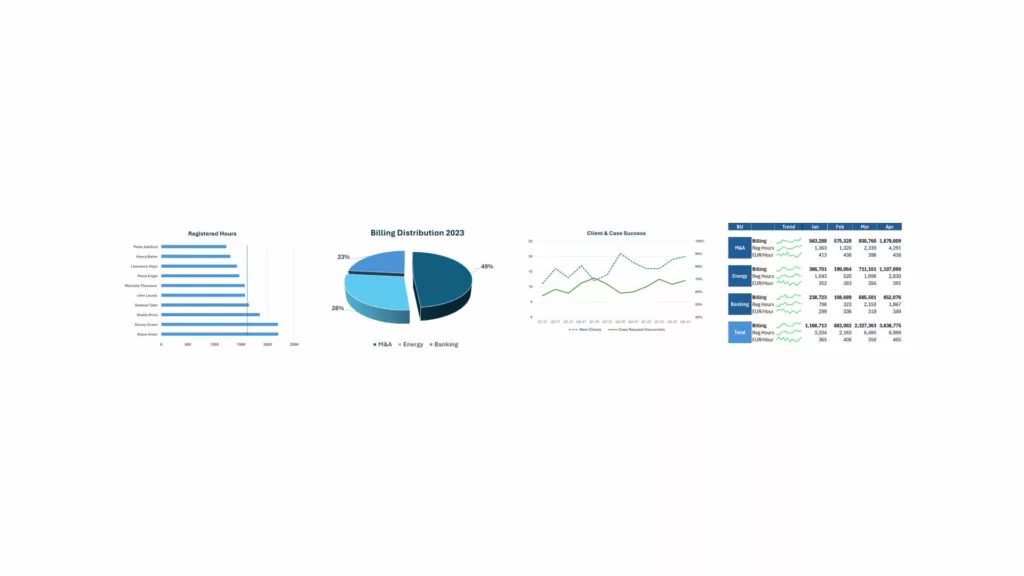What is a law practice management software
Over the years, the application, or suite of applications, called practice management has meant different things. Initially, practice management was just another way of saying time and billing.
But increasingly, vendors realize that practice management can also be a holistic approach to the workflows and information needs that a legal practice requires to run efficiently and profitably.
It is a widely known fact that legal professionals work lengthy hours. But what do they spend most of their time on? Is it possible that more of their time could be spent efficiently and productively?
The problem is that, being busy, they rarely stop to ask themselves these important questions.
What does that work bring back to the business? How can I reduce the time spent on non-billable administrative tasks? How can I reduce my overhead and still grow my business?
The legal industry’s landscape is constantly changing. For the past few years, growth has been slow, and competition has increased both from work moving in house and from alternative service providers such as consulting firms.
Change is inevitable. We can fight it or ignore it but not for long. This coming year law firms will face even more challenges.
Greater downward rate pressure, particularly for work in areas where a firm is undifferentiated.
The talent pool for law firms continues to shrink as competition increases from in-house legal departments and alternative service providers.
Pressure to use alternative fee arrangements (AFAs) even as many firms still struggle to identify, collect, and use data on their clients that would better inform this effort.
Even greater pressure to identify, develop, and manage effective practice group and sector team leaders.
EU-based law firms, especially, with the general data protection regulation (GDPR), will need to better understand how their data is stored and used, revise data security policies and practices, implement layered defenses, and develop response plans while exploring cyber insurance protection offerings.
These market conditions have also led to an increase in law firm mergers, small law firms closing down, and many lawyers being left unemployed.
To combat these downward trends, law firms are investing in talent, artificial intelligence, and cloud-based or hybrid practice management software.
Firms risk ending up on the wrong side of the widening profitability gap between leading and mid-tier firms if they fail to operate more efficiently, develop defined strategies, revisit staffing models, adopt new client service models, and use technology to optimize back-end and client-facing work.
Legal technology innovation
Legal innovation continues to build beyond technology alone to encompass how firms deliver legal services. Some firms have already enjoyed the efficiencies and business development opportunities that these innovative models and solutions present. Clients may not be asking directly for technology as part of their legal services, but its absence could erode demand at laggard companies. Firms that don’t keep up could fall behind better-positioned competitors, alternative providers, or in-house departments that are.
How to choose the right legal practice management software
In the crowded field that is the legal profession, you need to use every competitive advantage. The right practice management software will help you stand out and provide you with the tools to keep your focus where it should be: on your clients.
We are firm believers that the future of practice management software for lawyers is in the cloud, even for big law firms. There are many reasons why this is the case. We wrote about the benefits of moving your law firm to cloud-based software in a separate article, so we will not dive too deep on this one. Cloud-based practice management aligns perfectly with the challenges of a modern law firm.
The purpose of law practice management software is to simplify the everyday affairs of managing a law firm or in-house legal department. These tools offer legal workers better access to various records like case and billing details, appointment schedules, and business reports, among others.
Legal Technology or Legal Tech has rapidly evolved in recent years. So how can you tell if your existing practice management software is pulling its weight, or if you are not using one, how do you choose the best one for your law practice’s needs?
1. Are you spending more time on administrative tasks than you are face-to-face with your clients?
The volume of administrative tasks legal practitioners are exposed to is significant and heightened by the use of outdated practice management software that does not streamline workflows or automate common tasks.
By investing in your systems and keeping your technology up-to-date, you’re:
Eliminating the needless administrative workload that is burdensome to your firm
Introducing smarter information collection and sharing, improving the speed of client service offerings
Freeing up time for billable tasks
Improving client and employee satisfaction
Attracting top legal industry talent and improving your law firm’s brand
The good news is that by using a cloud based solution like LEX247 you will never have to worry about outdated software, hardware maintenance, unexpected downtime, hidden costs or any other downsides arising from using legacy systems.
2. Can you access the information you need at the right time from anywhere, through any internet connected device?
Many of the existing practice management solutions have been around since the 1990s, and although they are trying to keep up with modern innovations in the legal tech industry, they still lag behind current-generation law practice management platforms.
Many of these platforms are installed on a computer, require hours of training and onboarding, and are very unreliable in the long term. Although they claim to be cloud-based, from a technical standpoint, they are not. Some achieve remote access via desktop sharing software or through remote access via a virtual machine. Both options are outdated and don’t meet the strict security standards that cloud-based software needs to comply with.
3. Can you view custom financial reports, forecast revenue, and access deep insights on your law firm’s performance?
Lawyers, especially those operating smaller law practices, often take ownership of all aspects of their business, including client intake, HR, finances, forecasting, and more. Although these tasks are essential, they take a lot of time and effort that could be spent more effectively.
A good practice management solution for your law firm not only helps improve the overall efficiency of your law practice but also provides tangible, actionable, real-time data on the performance of your business.
Current generation cloud-based software solutions integrate with your existing document management and accounting solutions to expand on their functionality and offer benefits such as increased time savings by automatically syncing your data both ways and eliminating the need to input the same data twice.
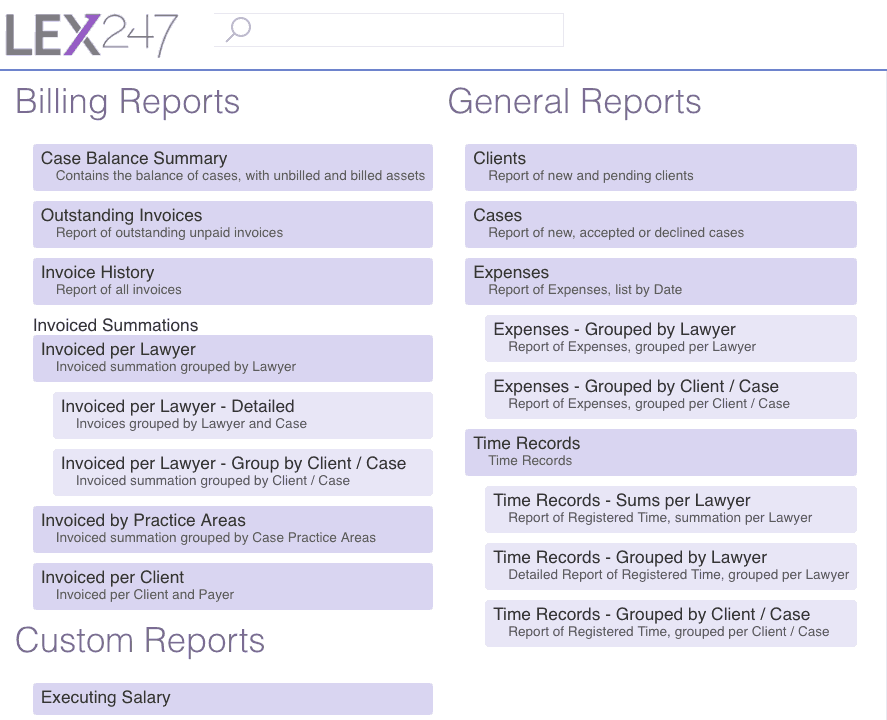
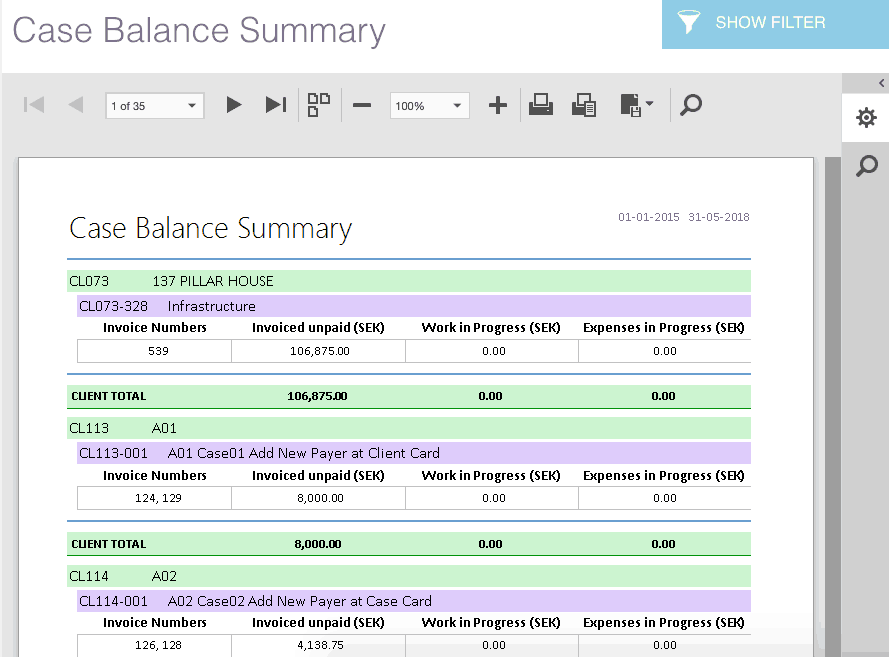
4. Do you need the freedom to migrate or export your data at any time you desire?
Many of the past-generation law practice management solutions need to be installed on your hardware just like any other software. They are difficult to set up and manage, and the software vendor must expend significant effort to onboard each new client. Due to this, new customers are often asked to sign long-term contracts and pay upfront setup and training fees, making it difficult for lawyers to switch platforms if they desire to.
Cloud-based law practice management software offers monthly payment plans, free trials, and the ability to export your law firm’s data with the click of a button. Because they are refined and up to date with modern technology trends, they do not need you to book appointments with the vendor’s representatives for training. The whole process from signing up to creating your first case in the system usually takes less than 10 minutes.
In conclusion
Before deciding whether you need a new law practice management software, do your research, ask other colleagues, sign up for trials, and see for yourself which one best fits your business’s needs.
Technology moves at a quick pace, and the legal industry has slowly but surely embraced the advancements made in the legal industry.
Choose a platform that scales with your practice and simplifies rather than complicates your day-to-day operations. In a data-driven world, not embracing the right tools and technology can mean being left behind.
By leveraging the automations and workflows that streamline administrative tasks, you can shift your focus on growing and improving your service offering to your firm’s clients.

